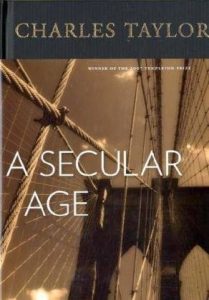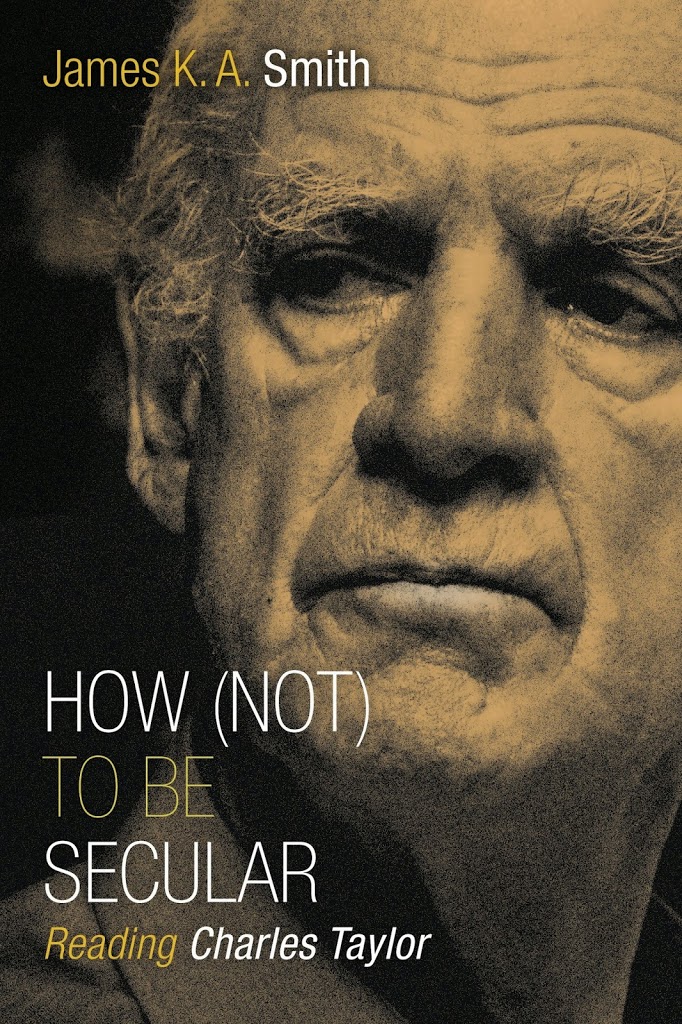Take it from a Christian and a critic: "The Chosen" is as well made and entertaining as many network dramas. But its relative invisibility to secular audiences is no surprise.
Have you heard about the hit Jesus TV show? The one that launched with a more than $10 million crowdfunding drive? And that streams for free from its own app, where the view counter has surpassed 194 million as of this writing? And that is honestly much better than I expected?
By the standards of independent media, The Chosen is a success. On Easter Sunday, 750,000 people tuned in to live-stream the Season 2 premiere; for comparison, the first episode of HBO’s Mare of Easttown attracted 1 million viewers that same month. Yet The Chosen—which presents the life of Jesus Christ and his disciples as a multi-season drama with imaginative character backstories and interpersonal conflicts—has been a largely underground phenomenon. Until its appearance on NBC’s Peacock earlier this year, The Chosen wasn’t on a major cable network or TV streaming service. Most mainstream publications have not reviewed it, though scattered reports mention its crowdfunding drives (in sum, the largest ever for a media project). You could pay close attention to the television industry and not know The Chosen exists. That’s because the show’s success so far has arrived not in spite of its insularity, but because of it.
Even many Christians are skeptical of faith-based entertainment. The Chosen’s showrunner, Dallas Jenkins, when I spoke with him recently, compared the people who spread the word about his show to the story of Christ’s disciple Philip telling his friend Nathanael that the messiah is from the backwater town of Nazareth. (“Can anything good come from there?” Nathanael famously replied.) So can a biblical series made by a production company from the founders of VidAngel—a service that allowed viewers to filter out nudity, profanity, and graphic violence from TV and movies, then was sold after a multimillion-dollar copyright-infringement lawsuit—actually be worth watching?
Take it from a critic and a Christian with an aversion to Christian entertainment: The show is good. I’d stop short of calling The Chosen a prestige drama, but it looks and feels downright secular. Despite a wonky accent here and there, the acting is as strong as you’d see on a mainstream network series such as Friday Night Lights or This Is Us. A tracking shot lasting more than 13 minutes opened one recent episode—a typical technique for a filmmaker to flex their skills. The storytelling even inspired me to comply with the show’s promotional hashtag and (ugh) #BingeJesus.
The Chosen has caught on with Christians in part because of scarcity. Faith-based streaming services such as PureFlix overflow with solemn dramatizations of Bible stories, though finding one with much depth or entertainment value is rare. Meanwhile, subversive Hollywood takes such as Noah or The Last Temptation of Christ turn off Christians who prize the authority of scripture. The more straightforward 2004 movie The Passion of the Christ was by far the highest-grossing Christian film of all time, and the last one to make a dent in secular pop culture. Yet it was hyper-focused on the last few hours of Jesus’s life, and its fixation on the gory details of his crucifixion was no one’s idea of fun.
The Chosen’s Jonathan Roumie plays Jesus as someone you’d actually like to hang out with, projecting divine gravity accented with easygoing warmth. He cracks jokes; he dances at parties. “What The Chosen has done well is give us kind of a robust portrait of a highly relatable Jesus that moves beyond some of the holier-than-thou, untouchable, unapproachable portraits of Jesus in the past,” says Terence Berry, the COO of the Wedgwood Circle, an investment group that finances faith-based media. (A Wedgwood member backed Silence—Martin Scorsese’s sparse and serious 2016 movie starring Andrew Garfield, Adam Driver, and Liam Neeson as 17th-century Jesuit missionaries.)
Rather than merely reciting Jesus’s greatest hits, Jenkins and his writers linger with characters in their daily lives—marital and professional conflicts, financial struggles, campfire gatherings. When the audience sees climactic moments from the Gospels, such as Jesus’s miraculous healing of a leper, the events register as disruptions of the status quo.
Although The Chosen stays faithful to the broad trajectory of the Christian Bible, it also creates some speculative backstories. Scripture mentions Jesus exorcising a demon from Mary Magdalene as almost a passing detail; The Chosen centers it in a tale that explains her subsequent devotion to Christ. Jews who collected taxes for Rome were considered traitors, so the show’s writers depict Matthew the tax collector as on the autism spectrum, reasoning that a social outcast might gravitate toward a profitable but thankless job. The account of Jesus turning water into wine at a wedding might be well known, but in the show, the miracle also saves the bride’s working-class parents from embarrassing the groom’s wealthy father.
The goal, Jenkins told me, was to come up with plausible scenarios that still jibe with the holy book. “We’re not trying to contradict the Bible,” he said. “We’re just trying to build a show around the Bible and tell stories that we think are compelling.” As a viewer who grew up attending church and has made studying scripture a central part of my adult life, I’ve found this approach consistently rewarding. Watching The Chosen is no substitute for reading the Bible—a disclaimer at the start of Season 1 even says “viewers are encouraged to read the Gospel.” But by putting another layer of human perspective between its viewers and its source material, The Chosen performs some of the functions of a good Bible teacher, providing cultural context for ancient events and probing viewers to empathize with the characters.
Some viewers are less enthusiastic. “Every day, I’m told that I’m blaspheming or that I’m a heretic or that I’m violating the Bible,” Jenkins said. But the show’s success suggests that there’s a market for faith-based content that takes creative liberties while maintaining a reverence for scripture. Christianity’s foundational claims naturally center on Jesus: Was he just a singularly wise man or the son of God? What did he accomplish by dying on the cross? Did he actually rise from the dead? Christians who take a literal view of the Bible’s events surely appreciate that The Chosen aligns with their beliefs on these questions. The Chosen does not offer natural explanations for Christ’s miracles, present him as a misunderstood martyr, or imply that he was gay or married. Although the show is still seasons away from the crucifixion, Jesus is already hinting that he is on Earth for a greater purpose—an allusion to his future death as a sacrifice for human sin. As long as Jenkins maintains orthodoxy on key points such as these, the show’s fan base seems likely to give him leeway to color around the margins of his Bible.
The Chosen, whose first season aired in 2019, is now raising money for its third season of a planned seven. Its popularity with a preexisting Christian audience is assured. But it hasn’t appeared to connect with many of the nonreligious. A tension between outreach and insularity has long persisted within the faith-based entertainment industry. Typically, biblical stories don’t permeate the secular mainstream without a star such as Charlton Heston or Mel Gibson attached, and modern American culture has never been less Christian than it is now. Yet Christian musical artists of all genres have been selling out arenas for decades, including Amy Grant, Lecrae, and NEEDTOBREATHE. Theaters see a steady flow of Christian films both confrontational (God’s Not Dead) and inspirational (Heaven Is for Real). Left Behind, the rapture-themed book series co-created by Jenkins’s father, Jerry, sold more than 80 million copies. The religious-media ecosystem encompasses cartoons, video games, and talk shows. Historically, it is also largely self-contained. “There was a creation of an entire subculture that produced its own versions of things and its own stations, and really was talking to itself,” says Michael Wear, who ran faith outreach for President Barack Obama’s reelection campaign and worked as a consultant for TV projects such as The Bible. “And now I think this next generation of Christian communicators [is] trying to break out of that.”
Jenkins doesn’t seem that concerned about whether non-Christians see his series. Besides Season 1 of The Chosen getting added to Peacock this spring, the show already streams on YouTube and Facebook, making it more and more accessible for the nonreligious. But the slew of faith-based cable networks that have begun syndicating the show within the past year—BYUtv, the Trinity Broadcasting Network, UPtv—more accurately reflect its promotional efforts. Jenkins acknowledges that most of the feedback he gets is from the Christians whom the show is heavily marketed to, and specialized trailers are designed to appeal to various denominations. His focus remains making episodes for his dedicated patrons, who are in some cases literally invested, thanks to the equity-crowdfunding provision of the JOBS Act, which allows financial backers to own a stake in the projects they support. The Chosen could pursue a production deal with Netflix, where executives are hungry for target-marketed programming and offer creative freedom, Wear says. Or it could follow the established web-series-to-legacy-cable path of shows such as Broad City and High Maintenance, says Craig Detweiler, the president of the Wedgwood Circle. Yet Jenkins’s hesitation to do this so far is easy to understand: The financial and creative autonomy of a self-funded hit, where all your production costs are paid for up front, is tremendous.
Jenkins can live outside the traditional media landscape by exclusively serving his existing fans—just like the writers and live-streamers on platforms such as Substack and Patreon do. Berry, from the Wedgwood Circle, points out that The Wingfeather Saga, a series of youth fantasy novels by the Christian musician Andrew Peterson, is now being adapted into a cartoon TV series after a $5 million equity-crowdfunding drive through The Chosen’s production company, Angel Studios. As much as he’s eager to see whether The Chosen can cross over to secular viewers, he’s equally if not more curious about whether its crowdfunded success can be repeated by other faith-based programs.
What’s happened with The Chosen represents what Mark Sayers, the senior leader of Red Church in Melbourne and a co-host of the Christian podcast This Cultural Moment, says is a shift toward a more “networked culture.” Today, a show doesn’t have to reach Breaking Bad levels of ubiquity to make an impact; it simply has to reach specific communities through personal connections. The Chosen will expand its footprint not by reaching secular audiences, but by finding Christians in every city with reliable internet. “People in Australia are watching,” Sayers says. “There’s huge Christian markets who speak English in places like Nigeria and beyond.”
This might sound counterintuitive: Evangelicalism is theoretically premised on spreading the “good news” about Jesus to as many nonbelievers as possible. Sayers thinks that The Chosen could be effective for starting spiritual conversations with skeptical friends, and I’m sure that some Christians have used the show that way. Still, for the most part, the series seems to be finding its fans among the converted. A secular audience might not have heard of The Chosen, simply because it was never who the show was trying to speak to. If The Chosen represents the next phase of Christian television, that future might include crisp production and nuanced storytelling. But it also seems familiarly destined to remain lodged within one of popular media’s oldest echo chambers.









